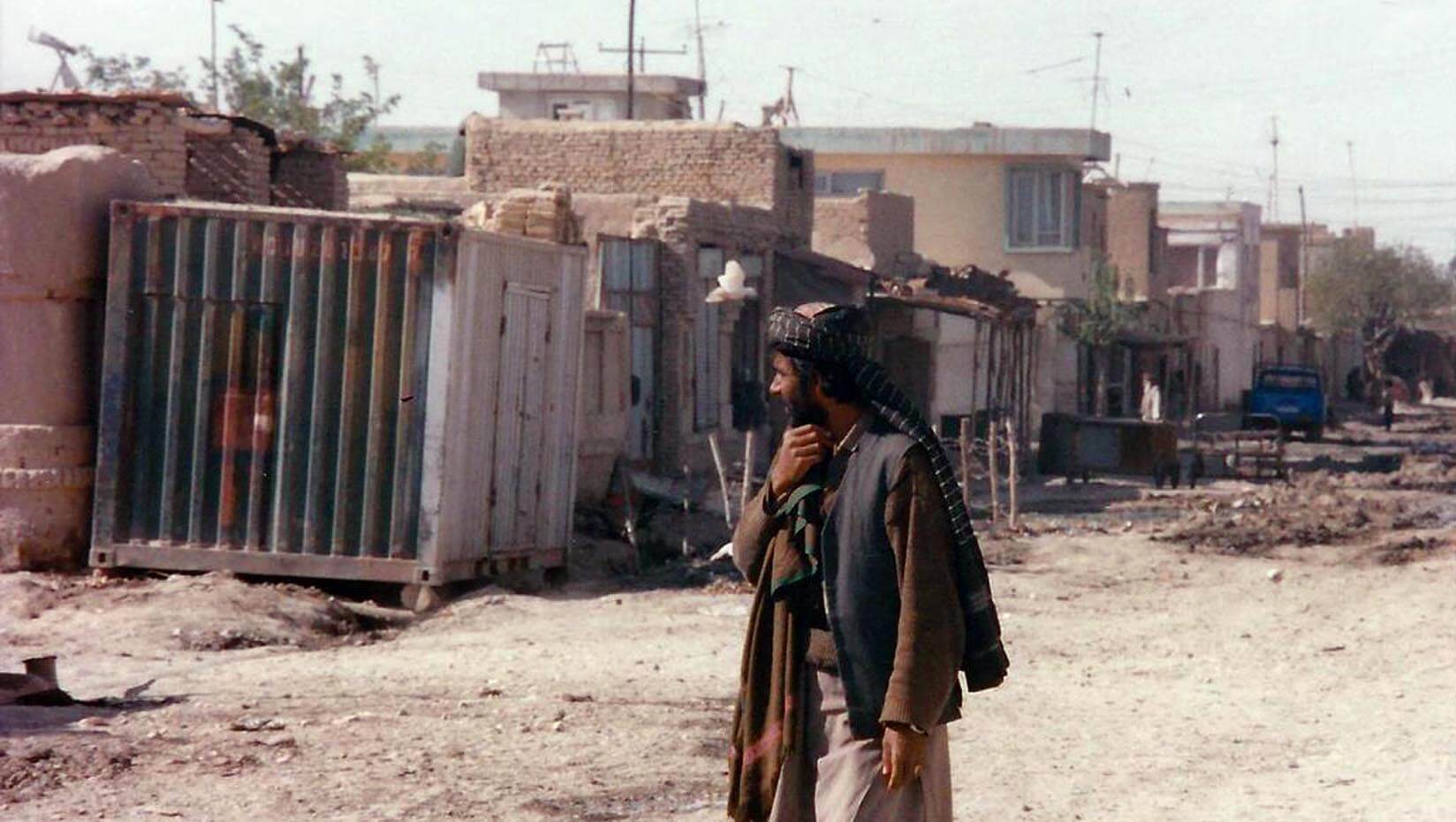
Pentagon leaders appeared before the Senate Armed Services Committee in late September to review the U.S. troop withdrawal from Afghanistan and the Taliban’s takeover of the country.
As the Taliban gains control over the country amidst ongoing instability, it has become clear that the road to peace seems more difficult than ever before.
“I think the real question is: as the Taliban has moved into the position of governance, will they step up to the role of governance?,” says University of Maine assistant professor Bill Farrell. “It’s not completely far-fetched to imagine that they have a desire to lead their country, in a way that is in their view, positive. But whether their governance approach is seen as positive by the people of Afghanistan or to the rest of the world certainly remains to be seen.”
Farrell, a member of UMaine’s School of Policy and International Affairs, teaches courses on issues of stability, conflict and violent extremism. Since the 1990s, he has conducted research in countries across Central Asia, the Caucasus region, and Africa, and has traveled to these regions to meet with government leaders, stakeholders and officials.
Back then he was working on negotiations to end the Tajikistan Civil War. “I sat in the contact group of guarantor states along with the ambassadors from Iran, Afghanistan, Russia, Pakistan, Kazakhstan, Kyrgyzstan, and the United Nations secretary general special representative,” Farrell explains.
Farrell was in Afghanistan in the late 1990s when the Taliban was making their initial push to the north. “We were trying to get refugees who were in northern Afghanistan back into Tajikistan across the Panj River. But while we were there, the Taliban were heavily attacking the Northern Alliance, where we were in Northern Alliance territory.” The Panj River, also known as the Pyandzh River, is a 700 mile long stretch of the border between Afghanistan and Tajikistan.
Just last year Farrell was working on facilitating strategy sessions with civil society organizations in Afghanistan who were working to support the peace process.
Beyond the question of governance, Farrell says there is the burgeoning humanitarian issue that must be addressed. “At the bare minimum, while it sounds really distasteful to provide assistance to Afghanistan right now, invariably there are millions of people who are suffering because of this departure and because of the Taliban’s takeover.”
Humanitarian assistance is going to be an essential reality. “Unless the Taliban can quickly harness the resources of their country, control their coffers and spend in a way that’s equitable, which I don’t see happening in the short term. The Afghan people are going to need humanitarian assistance to keep many alive and healthy and safe,” he explains.
And that kind of assistance will need to come from outside Afghanistan for now.
On the issue of women’s rights, which gained ground over the last two decades, Farrell says there may be limited ways to encourage progress and attempt to maintain some inclusivity under the new leadership, but ultimately it is up to the Taliban and their vision of governance.
“What’s the Taliban want to do? Do they want to govern in a way that is somehow more inclusive than they did 20 years ago? If they do, maybe there is something we can do to help orient them in this direction. If not, then it will likely be hard to influence them from the outside.”
The U.S. withdrawal contributed to the Afghan refugee crisis, a long existing consequence of the nation’s conflict. There also is the issue of the foreign violent extremists who came to Afghanistan to fight — some alongside the Taliban and others with their own agenda. Now that the Taliban is no longer fighting the Afghanistan government or coalition forces, it is uncertain whether foreign fighters will stay there or try to return home.
Within the border, peace itself could remain elusive, despite the Taliban’s tight control.
The impact of competing extremist groups on future stability within Afghanistan remains to be seen. The Islamic State in Iraq and Syria (ISIS) affiliate in Afghanistan, known as the ISIS Khorasan Province (ISIS-K or IS-KP) is more radical than the Taliban. The IS-KP claimed responsibility for the attack at Hamid Karzai International Airport in Kabul on Aug. 26, 2021, which killed 182 people, including 13 members of the U.S. military.
“Beyond these larger groups, you also just have localized regional interests, you’ve got clan affiliations, you’ve got ethnicities. All of that plays into who likes who, and who dislikes who within the area,” he explains. “The reality is the complexity of identity: the identity of ethnicity and clan, geography and group affiliation.”
Farrell is also worried about the symbolism of the U.S. withdrawal and its impact on global terrorist groups. He fears it could embolden other extremist groups around the world. “If you look at Indonesia, Mozambique, or Niger, what is a young Jihadi — a revolutionary — in those places to do when they look at Afghanistan and see those guys push the Soviets out? Now they’ve pushed the coalition forces and the Americans out.”
As we reflect on the U.S. occupation of Afghanistan, we are faced with the realization that state building is far more complicated than expected, and that peace after prolonged conflict is a difficult concept to visualize.
Ultimately, we can only hope that the Taliban will step up to the role of good governance and emerge as a stable leadership for the people of Afghanistan.
Contact: research@maine.edu
"conflict" - Google News
October 19, 2021 at 12:56AM
https://ift.tt/3pmFzjY
Conflict expert weighs in on the impact of US withdrawal from Afghanistan - UMaine News - University of Maine - University of Maine
"conflict" - Google News
https://ift.tt/3bZ36xX
https://ift.tt/3aYn0I8
Bagikan Berita Ini














0 Response to "Conflict expert weighs in on the impact of US withdrawal from Afghanistan - UMaine News - University of Maine - University of Maine"
Post a Comment